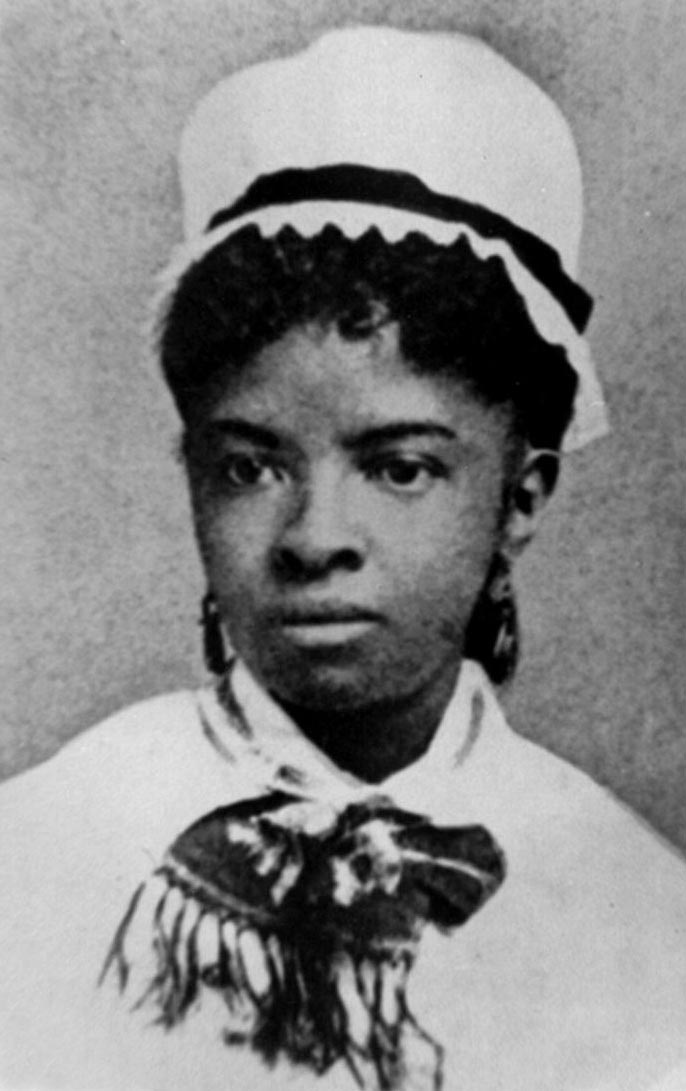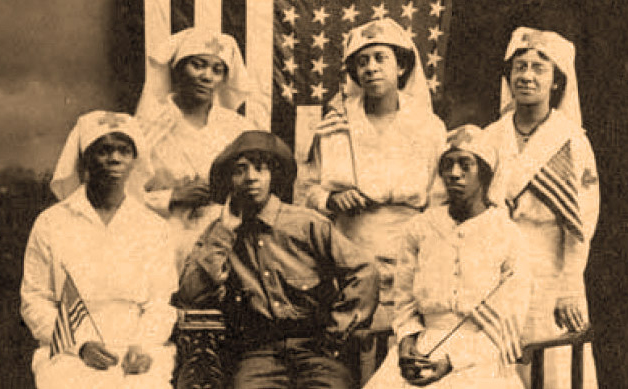Mary Elizabeth Mahoney – First African-American Nurse
Mary Elizabeth Mahoney, (1845-1926) was the first African American to graduate from the nursing school at New England Hospital for Women & Children in 1879 at the age of 34.
According to Wikipedia, “After receiving her nursing diploma, Mahoney worked for many years as a private care nurse, earning a distinguished reputation. She worked for predominantly white, wealthy families. Majority of her work with new mothers and newborns had been done in New Jersey, with the occasional travel to other states.
Families who employed Mahoney praised her efficiency in her nursing profession. Mahoney’s professionalism helped raise the status and standards of all nurses, especially minorities. Mahoney was known for her skills and preparedness. As Mahoney’s reputation quickly spread, Mahoney received private-duty nursing requests from patients in states in the north and south east coast.
One of many goals that Mahoney had hoped of achieving, was to change the way patients and families thought of minority nurses. Mahoney wanted to abolish any discrimination in the nursing field. Being an African American, in a predominantly white society, she often experienced discrimination as an African American woman.
From 1911 to 1912, Mahoney served as director of the Howard Colored Orphan Asylum for black children in Kings Park, Long Island, New York.[12][2] The asylum served as a home for freed colored children and the colored elderly. This institution was run by African Americans. Here, Mary Eliza Mahoney finished her career, helping people and using her knowledge however she knew best.
In 1896, Mahoney became one of the original members of a predominantly white Nurses Associated Alumnae of the United States and Canada (NAAUSC), which later became the American Nurses Association (ANA). In the early 1900s, the NAAUSC didn’t welcome African-American nurses into their association. In response, Mahoney co-founded a new, more welcoming nurse’s association, with help of Martha Minerva Franklin and Adah B. Thoms.[11] In 1908, she became co-founder of the National Association of Colored Graduate Nurses (NACGN). This association didn’t discriminate against anyone and aimed to support and congratulate the accomplishments of all outstanding nurses, and to eliminate racial discrimination in the nursing community. The association also strived to commemorate minority nurses on their accomplishments in the registered nursing field.
In retirement, Mahoney was still concerned with women’s equality and a strong supporter of women’s suffrage. She actively participated in the advancement of civil rights in the United States.[11] In 1920, after women’s suffrage was achieved in the U.S., Mahoney was among the first women in Boston to register to vote.
In 1923, Mahoney was diagnosed for breast cancer and battled the illness for 3 years until she died on January 4, 1926, at the age of 80.[14] Her grave is located in Woodlawn Cemetery in Everett, Massachusetts.[15][16] In 1968 Helen Sullivan Miller, a recipient of the Mary E. Mahoney Medal, spearheaded a drive to establish a proper monument.[17]
In recognition of her outstanding example to nurses of all races, the NACGN established the Mary Mahoney Award in 1936.[11] When NACGN merged with the American Nurses Association in 1951, the award was continued. Today, the Mary Mahoney Award[18] is bestowed biennially by the ANA in recognition of significant contributions in advancing equal opportunities in nursing for members of minority groups.
Mahoney was inducted into the American Nurses Association Hall of Fame in 1976.[19][20] She was inducted into the National Women’s Hall of Fame in 1993.”


